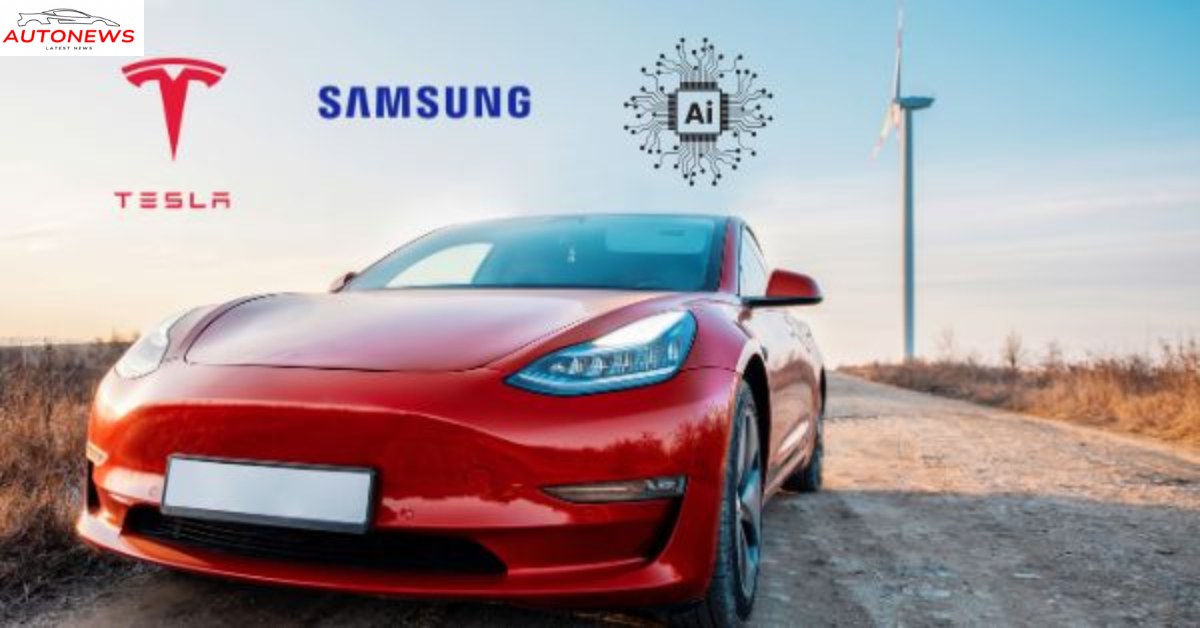In July 2025, Tesla CEO Elon Musk confirmed a milestone supply agreement: a US $16.5 billion contract with Samsung Electronics to manufacture Tesla’s next‑generation AI6 chips for a period running from July 26, 2025 until December 31, 2033.
🎯 Why It Matters: Strategic Alignment for Both Giants
- Tesla secures advanced U.S. manufacturing for critical AI silicon. The AI6 chip, which Tesla also refers to as “Hardware 6,” is designed to power Full Self‑Driving (FSD), Optimus humanoid robots, and Tesla’s AI infrastructure, including Dojo training systems.
- Samsung finally lands a marquee foundry client for its Texas facility. The Taylor, Texas fab had struggled to attract large customers for its logic chip capacity. This deal validates Samsung’s $30+ billion U.S. investments under the CHIPS Act and South Korea’s semiconductor push.
The contract represents approximately 7.6% of Samsung’s 2024 total revenue and is reportedly the largest single foundry contract in Samsung’s history.
🏗️ Production Vision: From AI4 to AI6 and Beyond
- Samsung already manufactures Tesla’s AI4 chips (Hardware 4 generation) while Tesla sources AI5 chips from TSMC, initially in Taiwan and Arizona.
- With this deal, Samsung’s Texas fab will be dedicated to AI6 production, with Tesla actively involved in optimizing factory efficiency. Musk even pledged to “walk the line personally,” citing the fab’s proximity to his home as convenient.
- Musk has hinted that the $16.5 billion is a baseline, with actual output “likely to be several times higher” as Tesla scales AI integration across its product lines.
🚀 Implications Across the Tech Landscape
Tesla: Security, Scale, and Vertical Integration
Tesla’s decision reflects a broader strategy: ensuring supply chain resilience by diversifying suppliers, particularly within the U.S., and retaining tight control over silicon development for its AI roadmap. The AI6 chip is expected to drive new revenue streams via FSD subscriptions and scaling Optimus deployment across robotics and training environments.
Samsung: Foundry Reboot and Market Relevance
For Samsung’s foundry business, which has struggled to compete with TSMC (holding just 8% of global foundry share vs. TSMC’s ~67%) this deal is critical. Analysts note the arrangement may offset over ₩5 trillion (~USD 3.6 billion) in first‑half 2025 losses. Even so, Samsung must prove it can scale volume, improve yields, and attract further customers beyond Tesla to solidify its competitive positioning.
⚠️ Risks and Challenges Ahead
- Execution risk: Samsung must improve 2-nanometer MBCFET yield rates significantly—likely aiming above 50% by late 2025—to stay competitive versus TSMC’s dominant yields.
- Timing constraints: The Texas fab is not expected to be fully operational until late 2026, with mass chip flow projected from late 2027 or 2028 onward. Tesla may continue relying on TSMC for AI5 production until then.
- Geopolitical headwinds: Trade tensions, water shortages in Texas, and policy shifts under U.S. tariffs or subsidy adjustments could threaten smooth delivery.
📈 Market and Industry Impacts
- Stock reactions: Samsung shares spiked 6–7% post‑news—its highest since September 2024—while Tesla saw a modest pre‑market gain of ~1.9%.
- Investor sentiment: Analysts see this as Samsung’s lifeline in foundry turning once in 2025—and potentially a turning point in foundry competitiveness if additional clients follow.
- Wider ecosystem shifts: The deal underscores a trend toward co-designed, long-term chip partnerships between automakers and foundries. It may trigger similar arrangements in automotive, robotics, defence, and AI sectors looking to lock in silicon control and cost efficiencies.
🔚 Final Word: A Defining Moment in AI‑Driven Mobility
Tesla and Samsung’s $16.5 billion chip supply deal is more than a procurement contract—it is a strategic bet on the future architecture of autonomy and AI. For Tesla, it’s about owning the hardware that underpins its AI dominance. For Samsung, it’s about reasserting itself amid fierce foundry competition.
If executed well, the AI6 chip may catalyse Tesla’s next phase: commercial-scale FSD, humanoid robotics, and AI-trained infrastructure. At the same time, Samsung could use the momentum to break into TSMC’s logic-chip stranglehold.

